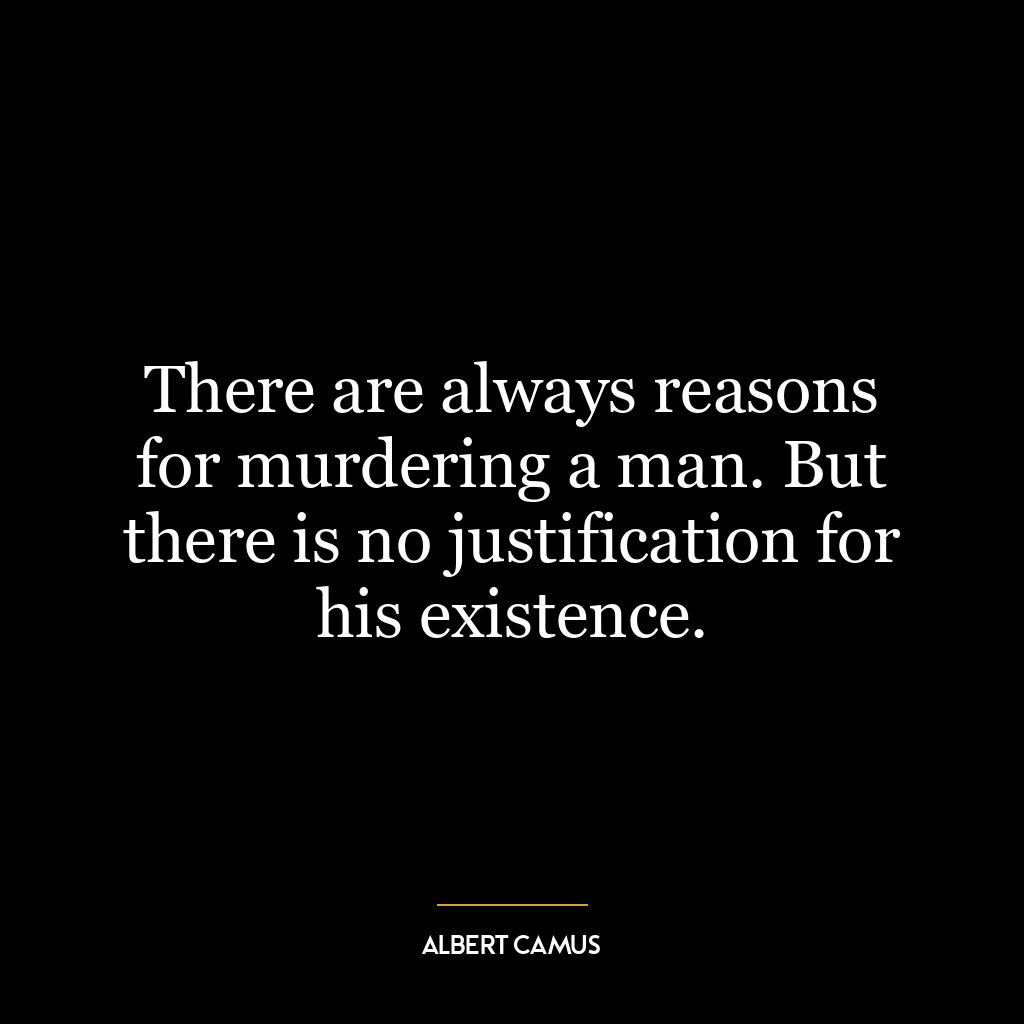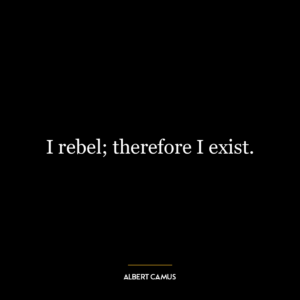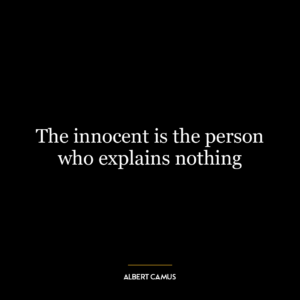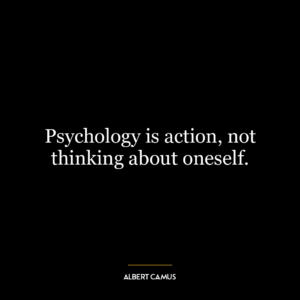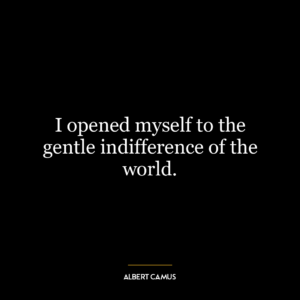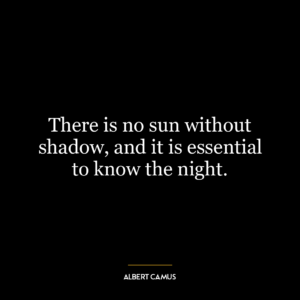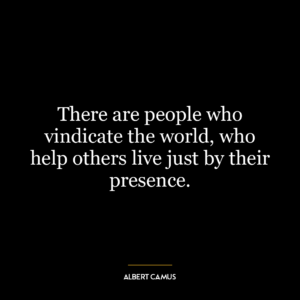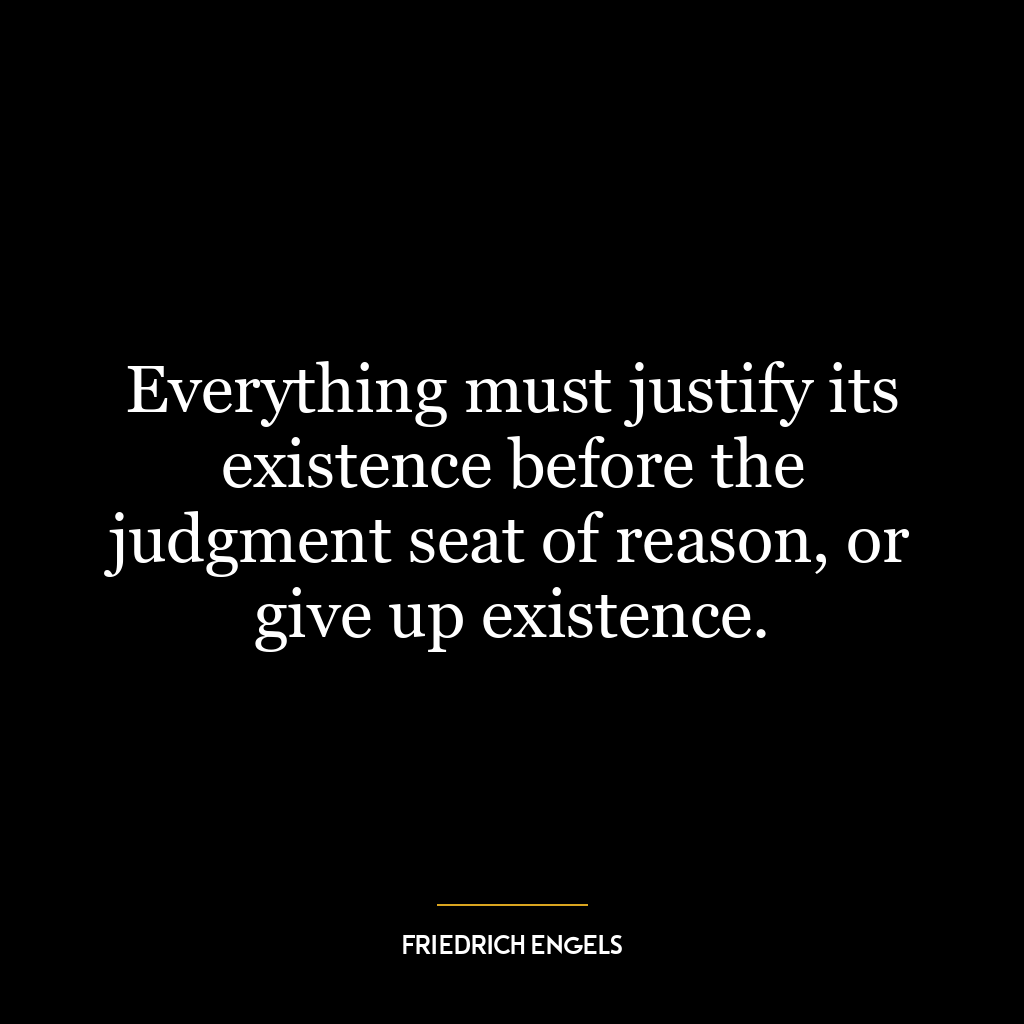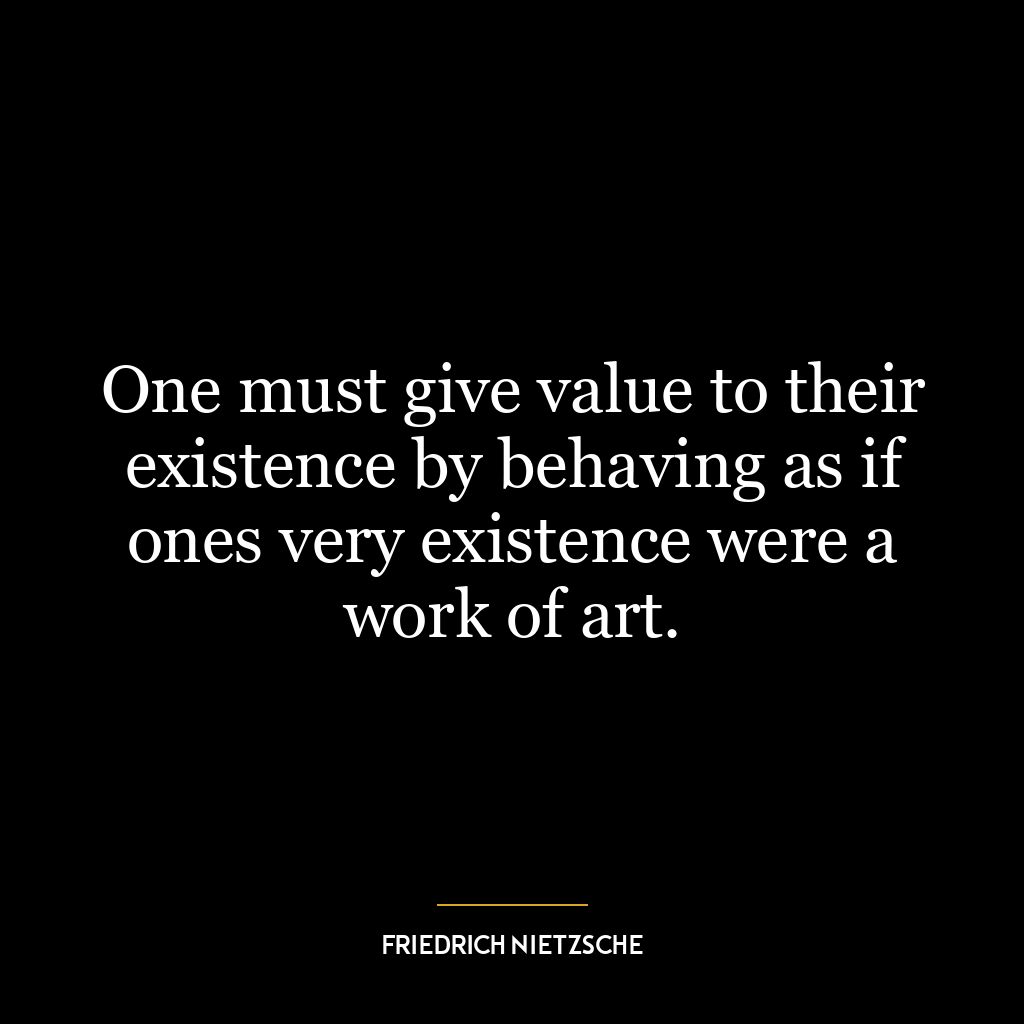There are always reasons for murdering a man. But there is no justification for his existence.
This quote is a classic example of existentialist philosophy, which Albert Camus was known for. It suggests that we can always find reasons to destroy or harm someone, but it’s much harder to find a reason to justify why they, or we, exist in the first place. This is not a call to violence, but rather a commentary on the human condition and our struggle to find meaning in life.
The first part of the quote, ”There are always reasons for murdering a man,” indicates that humans can easily find excuses or reasons to harm others, whether it be out of anger, jealousy, hatred, or fear. This is a reflection of the darker side of human nature and our capacity for violence.
The second part of the quote, “But there is no justification for his existence,” delves into the core of existentialist thought. It suggests that while we can find reasons to destroy, it’s much more difficult to find reasons why we exist in the first place. In other words, while we can easily justify our negative actions, we struggle to justify our own existence or find a clear purpose or meaning in life.
In today’s world, this quote could be applied to a variety of situations. For example, in the realm of politics and social issues, people often find reasons to harm or belittle those who have different views or come from different backgrounds. However, finding a justification for our own existence, our own beliefs, and our own actions is a much more challenging task.
In terms of personal development, this quote could serve as a reminder to focus more on finding our own purpose and less on criticizing or harming others. It encourages introspection and self-discovery, urging us to seek justification for our own existence and to find our own unique purpose in life. It could also be interpreted as a call to recognize the inherent value in every individual’s existence, rather than focusing on reasons to harm or belittle.
In essence, this quote is a critique of our propensity for negativity and violence, and a call to find meaning and purpose in our own lives. It’s a reminder that while it’s easy to find reasons to harm, it’s much more challenging, but ultimately rewarding, to find reasons to live and to let live.

